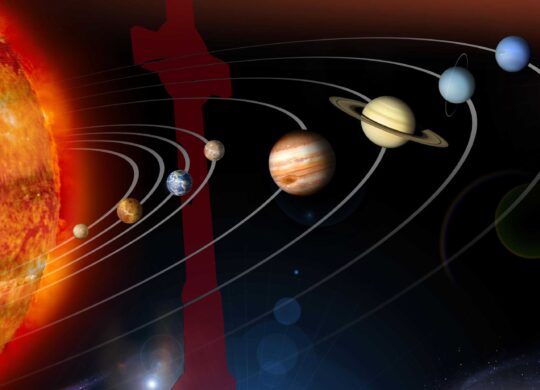Planet?

Last month, Prof. Stephen Kane, an astrophysicist in the Department of Earth and Planetary Sciences, University of California, Riverside, published “The Dynamical Consequences of a Super-Earth in the Solar System,” in The Planetary Science Journal. The long and short of it? Thank God there is no planet in between Mars and Jupiter; it could have pushed Earth out of the solar system, wiping out all known life.
There is, according to Kane, a big gap in planetary science relating to our solar system: You have a bunch of inner planets—Mercury, Venus, Earth, and Mars—and a bunch of outer planets—Jupiter, Saturn, Uranus, and Nepture. And there is nothing in between these two groups, except another bunch—a bunch of asteroids.
Said Kane:
The architecture of the solar system’s planetary orbits exhibits a substantial gap between the orbits of Mars and Jupiter, populated by a vast reservoir of asteroids.”
This is unlike other star systems.
In other star systems there are many planets with masses in that gap. We call them super-Earths.”
Nothing like that between Mars and Jupiter.
Planetary scientists often wish there was something in between those two planets. It seems like wasted real estate.”
In order to fill in the gaps, Kane ran dynamic computer simulations of a planet between Mars and Jupiter with numerous different masses and observed the effects of the planet on the orbits of the other planets in the solar system.
Kane again:
This fictional planet gives a nudge to Jupiter that is just enough to destabilize everything else. Despite many astronomers having wished for this extra planet, it’s a good thing we don’t have it.”
As Jupiter is larger than all the other planets in the solar system combines and its mass is 318 times that of Earth its gravitational pull is powerful enough that if a super-Earth or any other celestial object disturbed it, it would have a major impact on all the other planets. The presence of this object could eject Mercury, Venus and Earth from the solar system and destabilize the orbits of Uranus and Neptune, ultimately ejecting them into outer space as well.
Also that postulated super-Earth would change the shape of Earth’s orbit, making it much less habitable if not wiping out all life completely.
So Kane concluded:
This work presents a positive aspect of the lack of a local super-Earth, in demonstrating the potential for orbital instability that such an additional planetary mass may induce.”
He said in a press release:
Our solar system is more finely tuned than I appreciated before. It all works like intricate clock gears. Throw more gears into the mix and it all breaks.”
Of course! Dr. Kane sounded rather surprised by all this. But we knew it all along. At least those who believe the Bible did.
Yahweh, our Lord, how majestic is Your name in all the earth!
[You] who have presented Your splendor upon the heavens.
Psalm 8:1
And the splendorous work of the God in creating all of this moves the psalmist to wonder at something even more marvelous:
When I see Your heavens, the works of Your fingers,
the moon and the stars, which You have appointed,
what is a human that You are mindful of him,
and a mortal that You care for him!
Psalm 8:3–4
To think that the deity who created the heavens cares for humans on a tiny blue marble is astonishing.
Truly …
Yahweh, our Lord, how majestic is Your name in all the earth.
Psalm 8:9
SOURCE: Jerusalem Post; The Planetary Science Journal











 Abe Kuruvilla is the Carl E. Bates Professor of Christian Preaching at The Southern Baptist Theological Seminary (Louisville, KY), and a dermatologist in private practice. His passion is to explore, explain, and exemplify preaching.
Abe Kuruvilla is the Carl E. Bates Professor of Christian Preaching at The Southern Baptist Theological Seminary (Louisville, KY), and a dermatologist in private practice. His passion is to explore, explain, and exemplify preaching.
2 Comments
Went to ICR Museum yesterday and saw the planetarium presentation. Your post added even more – thanks for posting!!!!
Sending love and God’s blessings!
Same to you, too, Kay!